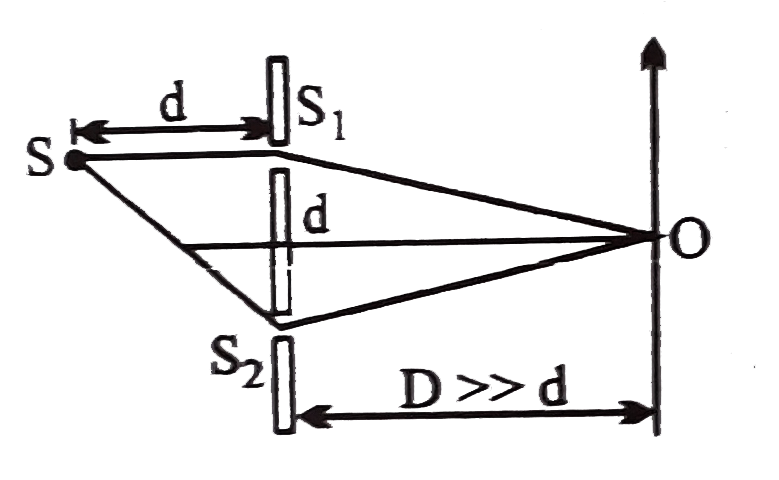The central fringe of the interference pattern produced by the light of wavelength 6000 Å is found to shift to the position of 4th dark fringe after a glass sheet of refractive index 1.5 is introduced. The thickness of glass sheet would be
The correct Answer is:B
Topper's Solved these Questions
- WAVE OPTICSBOOK - NARAYNACHAPTER - WAVE OPTICSEXERCISE - Example
70 Videos
- WAVE OPTICSBOOK - NARAYNACHAPTER - WAVE OPTICSEXERCISE - Evaluate yourself - 1
12 Videos
- WAVE OPTICSBOOK - NARAYNACHAPTER - WAVE OPTICSEXERCISE - LEVEL - I(H.W)
20 Videos
- SEMICONDUCTOR ELECTRONICSBOOK - NARAYNACHAPTER - SEMICONDUCTOR ELECTRONICSEXERCISE - ADDITIONAL EXERCISE (ASSERTION AND REASON TYPE QUESTIONS :)
19 Videos
Similar Questions
Assuming the expression for the path difference between two interfering light waves for bright and dark fringes, obtain an expression for the fringe width.
The central fringe of a double-slit interference pattern produced by light of wavelength 6000Å shifts to the position of the 5th bright fringe on introducing a thin glass plate of refractive index 1.5 in front of one of the slits. Calculate the thickness of the plate.
View SolutionA central fringe of interference pattern produced by light of wavelength 6000Å is shifted to the position of 5th bright fringe by introducing thin film of μ=1.5. Calculate thickness of the film.
View Solution
Knowledge Check
The central fringe of the interference pattern produced by light of wavelength 6000A is found to shift to the position of 4th bright fringe after a glass plate of refraction index 1.5 is introduced in front of one slit in young's experiment. The thickness of the glass plate will be
A4.8μmB8.23μmC14.98μmD3.78μmTo make the central fringe at the centerO , mica sheet of refractive index 1.5 is introduced Choose the corect statement(S).
 AThe thickness of sheet is 2(√2−1)d infornt of S1BThe thickness of sheet is (√2−1)d infornt of S2CThe thickness of sheet is 2√2d infornt of S1DThe thickness of sheet is (2√2−1)d infornt of S1
AThe thickness of sheet is 2(√2−1)d infornt of S1BThe thickness of sheet is (√2−1)d infornt of S2CThe thickness of sheet is 2√2d infornt of S1DThe thickness of sheet is (2√2−1)d infornt of S1The central fringe shifts to the position of fifth bright fringe, if a thin film of refractive index 1.5 is introduced in the path of light of wavelength 5000Å. The thickness of the glass plate is
A1μmB5μmC3μmD4μm
In YDSE, the central bright fringe produced by light of wavelength 5600Å shifts to the position of 5th bright fringe when a thin transparent film of refractive index 1.28 is introduced in the path of light from one of the two slits. Find the thickness of the film.
View SolutionFringes are produced with monochromatic light of wave-length 5.45×10−5 cm. A thin glass plate of refractive index 1.5 is then placed normally in the path of one of the interference beams and the central bright band of the fringe system is found to move into the position previously occupied by the third bright band from the system. Find the thickness of the glass plate.
View SolutionLight of wavelength 6000Å is reflected at nearly normal incidence from a soap films of refractive index 1.4 The least thickness of the fringe then will appear black is
View SolutionFringes are produced with monochromatic light of wavelength 5500 Å. A thin glass plate of R.I. 1.5 is then placed normally in one of the paths of interfering beams and the central bright fringe is found to be shifted to the position, previously occupied by the third bright band from the centre. the thickness of the glass plate is
View SolutionGreen light of wavelength 5460Å is incident on an air glass interface. If the refractive index of glass is 1.5, the wavelength of light in glass would be (C=3×108ms−1)n
View Solution
